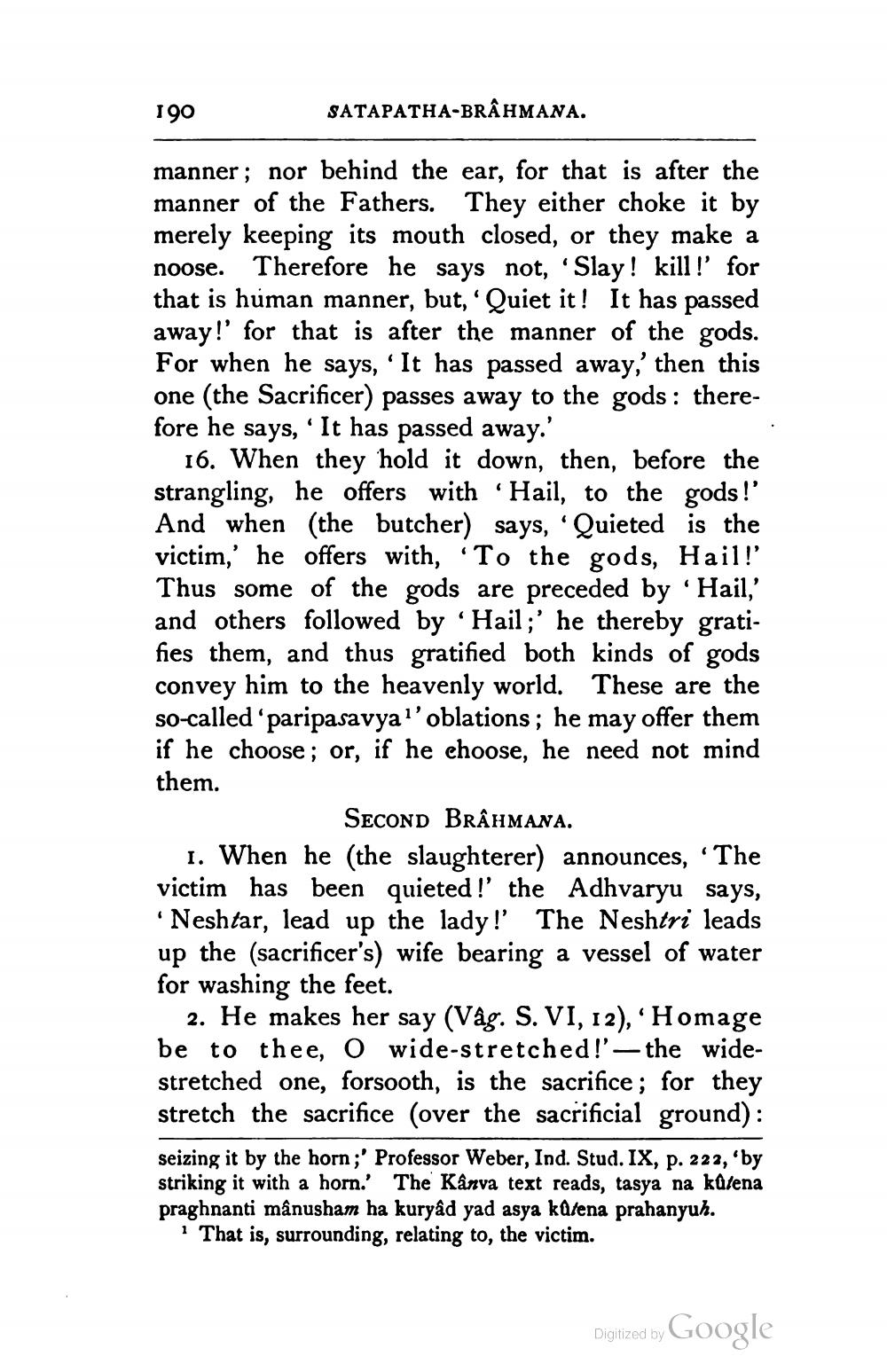________________
190
SATAPATHA-BRAHMANA.
manner; nor behind the ear, for that is after the manner of the Fathers. They either choke it by merely keeping its mouth closed, or they make a noose. Therefore he says not, 'Slay! kill !' for that is human manner, but,' Quiet it! It has passed away!' for that is after the manner of the gods. For when he says, 'It has passed away,' then this one (the Sacrificer) passes away to the gods: therefore he says, 'It has passed away.'
16. When they hold it down, then, before the strangling, he offers with Hail, to the gods!' And when the butcher) says, 'Quieted is the victim,' he offers with, "To the gods, Hail!' Thus some of the gods are preceded by Hail,' and others followed by Hail;' he thereby gratifies them, and thus gratified both kinds of gods convey him to the heavenly world. These are the so-called 'paripasavyal'oblations; he may offer them if he choose; or, if he choose, he need not mind them.
SECOND BRAHMANA. 1. When he (the slaughterer) announces, “The victim has been quieted !' the Adhvaryu says,
Neshtar, lead up the lady!' The Neshtri leads up the (sacrificer's) wife bearing a vessel of water for washing the feet.
2. He makes her say (Våg. S. VI, 12), 'Homage be to thee, O wide-stretched!' - the widestretched one, forsooth, is the sacrifice; for they stretch the sacrifice (over the sacrificial ground): seizing it by the horn;' Professor Weber, Ind. Stud. IX, p. 222,"by striking it with a horn.' The Kanva text reads, tasya na kutena praghnanti mânusham ha kuryâd yad asya kutena prahanyuh.
1 That is, surrounding, relating to, the victim.
Digitized by Google




